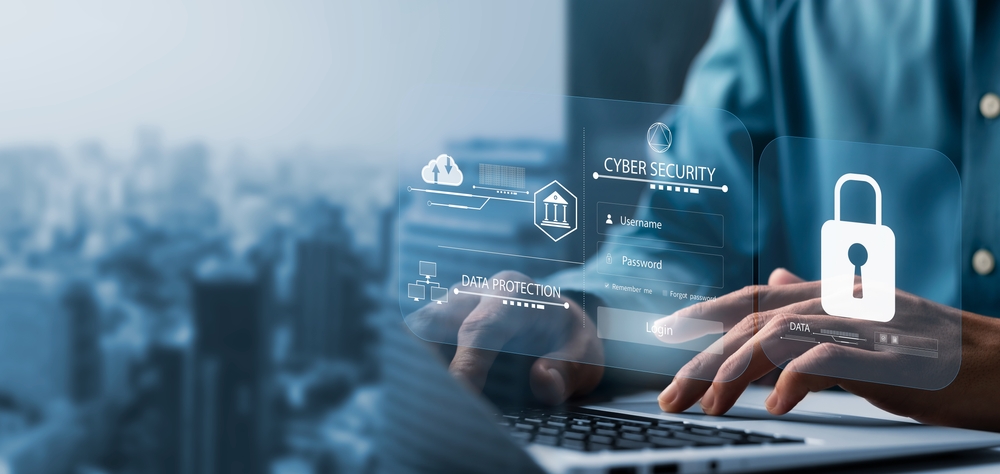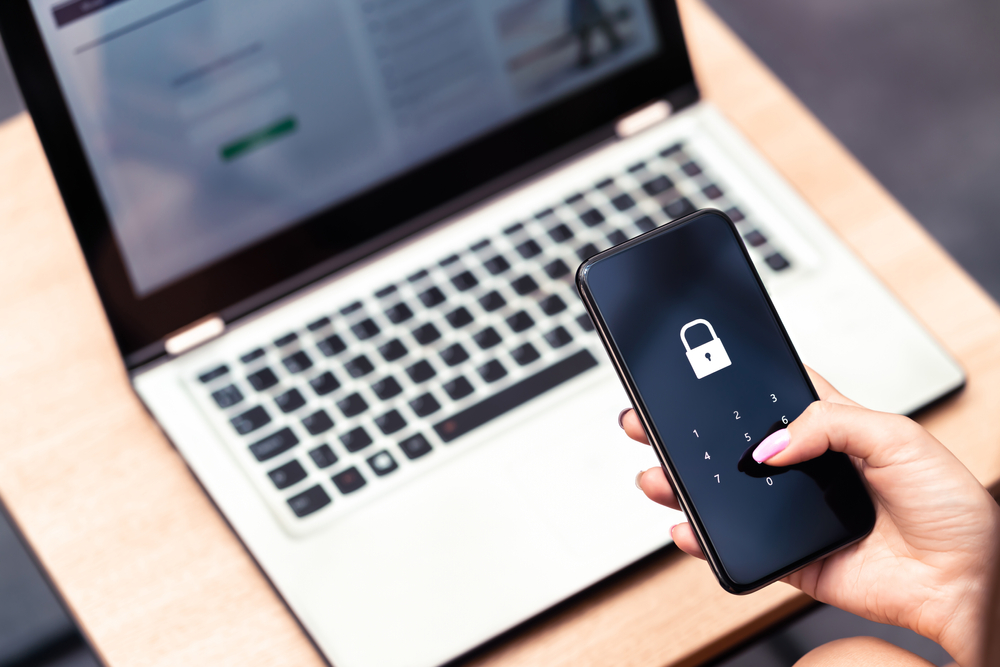
Internet Security
Discover the main scams on the Internet and learn five practical tips to avoid falling into digital fraud.
Learn about the most common scams and tips to protect yourself
Understanding how these crimes occur and knowing digital security practices are essential to protect yourself from scammers and avoid possible losses.
What are the most frequent digital scams?
With advances in technology, it is increasingly difficult to say what is true and what is fraudulent in the digital universe - and any minor detail that is ignored can be costly. Online scammers benefit every day from people's frailty and innocence to trick them.Through old and updated strategies, they are able to access phones and computers, collect data, and take money from Internet users. Sometimes the scam comes through a fake bill, a promise of a service that will never be fulfilled, or even a non-existent job opening.
The list is long and there is still no solution to these digital frauds that are multiplying on the Internet. Even as authorities develop new security features, criminals will continue to improve their techniques and take advantage of the good faith of Internet users.
It is very important to know which are the most frequently applied scams and to be aware of the first signs. Among the most common are:
 Fake company page scam
Fake company page scam
Scammers create fake pages or profiles that mimic renowned companies and institutions to trick people into clicking on links so they can capture personal data, such as username, passwords, credit card numbers, and other information.
 WhatsApp scam
WhatsApp scam
Using an unknown number and a photo of the victim in the profile, the scammers send WhatsApp messages to the victim's contacts asking for bank transfers or bill payments in the person's name. It's common for him to start the conversation by saying that he lost his old phone and that's your new number.
 False bill scam
False bill scam
Criminals create fake bills that look very similar to those already issued by large institutions and have values close to what would be the reality. When making the payment, the victim transfers the money directly to the scammers, without receiving the promised product or service.
 Pix scam
Pix scam
The Pix also began to be used by scammers after becoming popular in Brazil. Criminals contact victims by offering products or services in exchange for payment through the tool. After the Pix is performed, the person disappears.
 “Pishing” scam
“Pishing” scam
Through fraudulent messages, scammers contact victims as if they were recognized institutions, such as banks and energy distributors, or even as close friends, and include malicious links taking Internet users to fake sites where their personal data is captured.
 Fake call center scam
Fake call center scam
Criminals contact the victim pretending to represent a bank or a company and report a problem, which may be a false overdue account or a non-existent purchase at a high amount, for example. They then take advantage of it to obtain personal data, take financial advantages or control the cell phone of the person who is falling for the scam.
 Job advertisement scam
Job advertisement scam
Taking advantage of the fragility of people seeking job opportunities, criminals create fake sites with vacancies that have benefits and salaries that don't exist to steal personal information and even money from victims.5 practical tips to avoid falling for digital scams
In addition to knowing the types of scams that are being applied on the Internet, there are also some basic security tips that help you avoid falling into these and other frauds:- Before transferring or paying an invoice, it is essential to verify the identity of the person requesting payment. In case of suspicion, do not complete the operation. Especially in the case of friends who are in supposed financial difficulty;
- Be careful when clicking on links received via e-mail, SMS messages, WhatsApp, or social networks that lead to the registration of personal or payment information. Make sure that they really are from the company's official channels or partners.

- Avoid repeating passwords in all applications and do not use obvious personal information when creating them, such as dates of birth, first name or family members.
- Be wary of offers, job openings, or online promotions that seem very good and easy. Always check the legitimacy of the site and the company before providing any personal information or making a payment.
How can Neoenergia consumers defend themselves against Internet fraud?
Neoenergia is concerned about the safety of its consumers on the Internet and provides some more guidelines so that they do not become victims of scammers:Get in direct contact
If they feel that they may be falling for a scam, the customer must immediately contact us to ascertain the legitimacy of the charge through official commercial service.Pay the bill securely
NEOENERGY ELEKTRO:
The most secure way to pay a Neoenergia account is through Pix. The Pix QR code is available on the bill itself or through a duplicate energy bill through WhatsApp or the company's official website. For those who receive the digital invoice, it is possible to pay using the QR Code by accessing the bank's app.
NEOENERGIA COELBA, PERNAMBUCO AND COSERN:
The most secure way to pay a Neoenergia account is through Pix. The Pix QR code is available on the bill itself or through a duplicate of the energy bill through the company's official website. For those who receive the digital invoice, it is possible to pay using the QR Code by accessing the bank's app
NEOENERGIA BRASILIA:
The most secure way to pay a Neoenergia account is through Pix. The pix QR code is available on the invoice itself.
Confirm the sender and don't click on suspicious links, pages, or files.
Learn more about your bill:
- Name of the payee: refers to the name of the company that should receive the amount. Before confirming any payment of energy bills, check that the details belong to your distributor, including the CNPJ.
- Barcode: Tampered tickets may show the beginning of the barcode of one issuer and the logo of another.
- Amount: Check and confirm that the amount to be paid is correct.
- Expiration date and misspellings: Fake bills often have an altered expiration date and misspellings.
- Digital invoice: confirm the sender and don't click on suspicious links, pages or files. Neoenergia submits your energy bill through official channels and you can only access it with the use of a password.
Neoenergia does not send proactive messages via WhatsApp requesting personal data or sending an energy bill without your request. The official numbers have app verification symbols.
Payments through Pix can only be made through QR Codes and “copy and paste” available on the company's official channels, such as the website, app and WhatsApp.
This service can be easily requested through Neoenergia's telephone number 116, at service stores or through the company's website. It is essential to highlight that this procedure is completely free.
If the consumer has not taken these security measures, the company advises the Civil Police to issue a Police Report to map this type of action and possible compensation for the damages caused by the criminals.
In specific situations, Neoenergia may request information or confirmation of personal data to fulfill a customer request. However, before submitting your details, confirm that it is the company profile. Follow the company's official channels and be wary of potential fake profiles.
If the consumer has not taken these security measures, the company advises the Civil Police to issue a Police Report to map this type of action and possible compensation for the damages caused by the criminals.
Neoenergia does not contact you to request personal information. If someone shows up at your home, claiming to be a company representative and you haven't requested any service, we recommend that you always check their uniform, badge and that they are using an official company vehicle or an authorized service provider. In case of doubt, do not hesitate to contact the call center to confirm the veracity of the visit.
-
Access to digital channels and improved service
-
Proof of residence and participation in federal government social programs
-
Campaigns from distributors
-
Registration of the use of Vital Equipment
-
Receiving communications
-
Protection of registration data